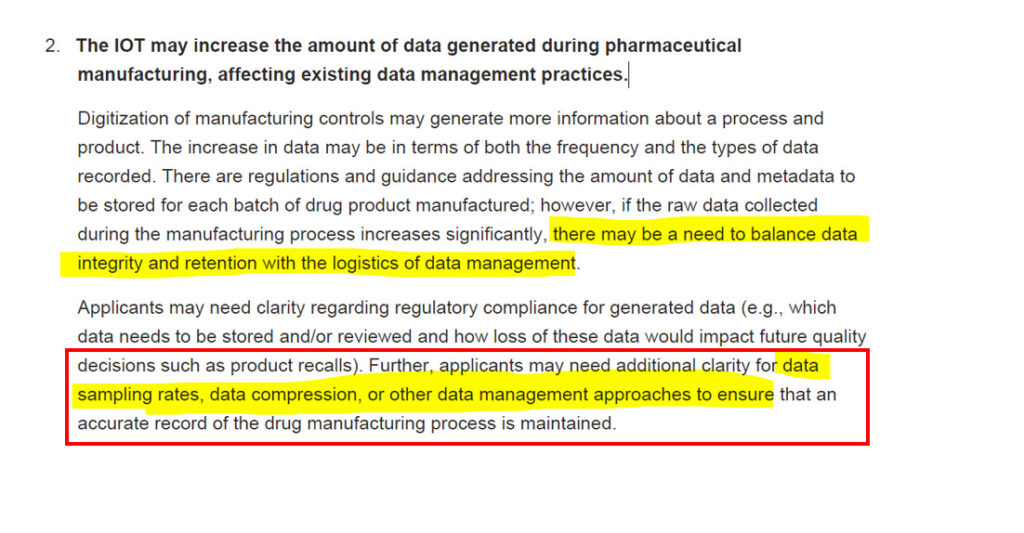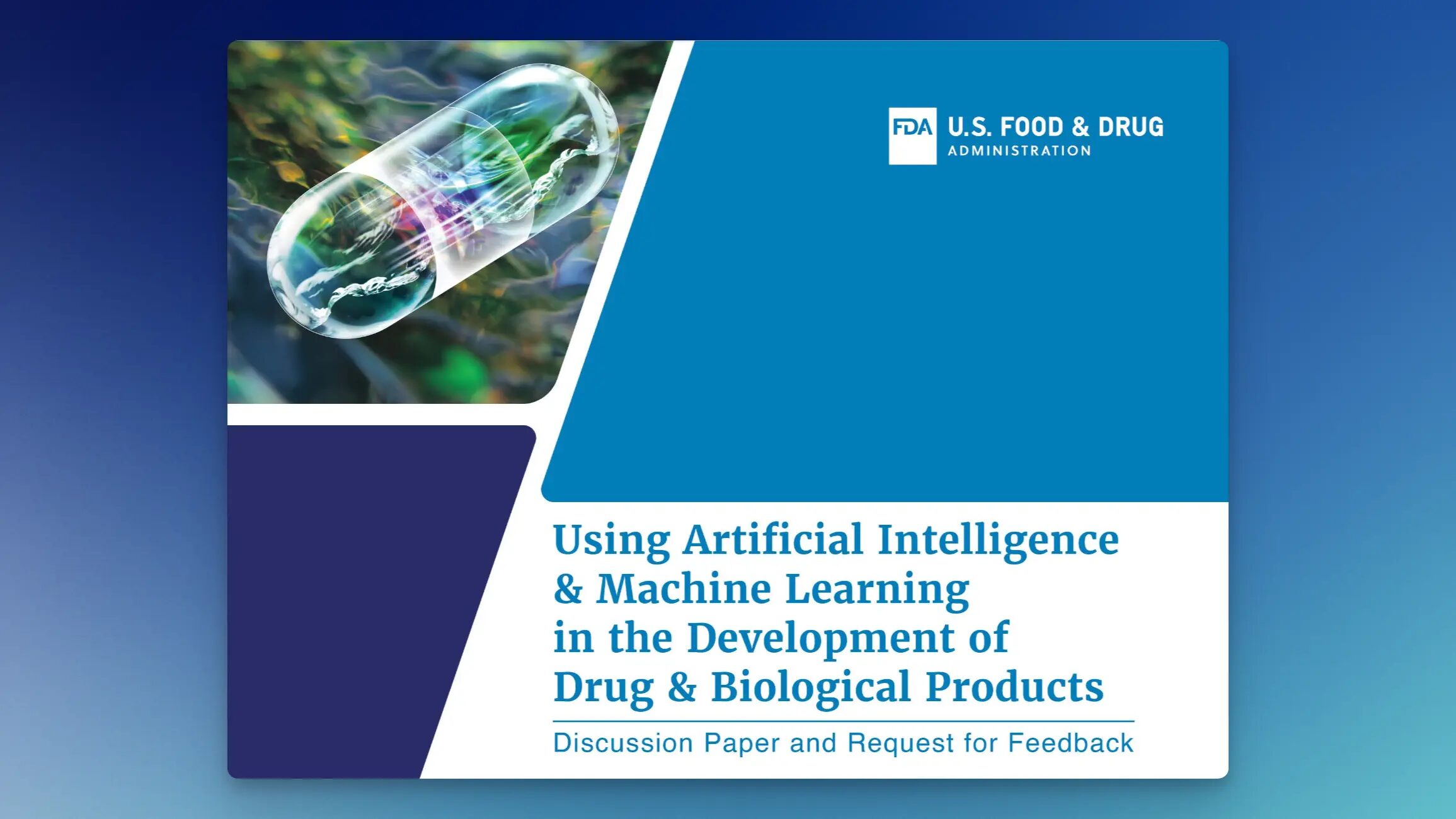Recently FDA came out with a discussion paper on Artificial Intelligence in drug manufacturing. These have interesting questions that we have also been pondering over since we began working on our Factorian edge computing platform.
The first point that FDA discussions paper ask is about how cloud will affect the overall oversight of pharmaceutical manufacturing data and records. Here below I have highlighted the areas of concerns from FDA when we are talking about a pure cloud strategy where companies are planning to move their manufacturing data (in particular machine data) to the cloud to develop and run machine learning and AI models.

Figure 1
Moving manufacturing data to the cloud would certainly add more complexity and security challenges that may be difficult to justify the risk vs rewards gained. If the same tasks could be accomplished by bringing cloud technologies on-premises near the plant floor, then we can alleviate many of the concerns and risk associated with moving data and analytics to a third party cloud provider outside the company premises.
Another concern from FDA is increasing amount of data generated owing to IOT, increased digitization and interconnected machines on factory floor. The volume and velocity of data generated will have wide spectrum of data type diversity and frequency due to this increase in data generation. This poses a serious challenge in terms of moving this data to the cloud which could become cost prohibitive that will compel companies to down-sample this data to be able to handle this high volume and high velocity data. FDA has raised valid concerns on balancing data integrity and retention with logistics of data management when it comes to moving data to the cloud. Furthermore, it further raises questions on sampling rate, data compression and other data management approaches that will need to be considered for moving the data to the cloud that can seriously affect the accuracy of the original record of the drug manufacturing process (see figure below with highlighted sections). Companies implementing cloud strategy for such data should have clear understanding of as to why and how much they need to compress or down-sample to establish to the FDA that the original record can be reproduced from the down-sampled /compressed data. This may not be a trivial thing to explain for many organizations.

Figure 2
Using edge computing clusters like Factorian some of these challenges and risks can be alleviated by keeping this high volume, high velocity and diverse data set on-premises without having to down-sample or apply any complex compression algorithms. Moreover, platform like Factorian edge computing clusters can provide full container orchestration and compute environments that is needed to run AI and ML models.
FDA has rightly raised concerns over validity and accuracy of AI models which demands a new post altogether as separate big topic of discussion, however these models will need to be constantly updated and adjusted to self-learn which will need them be build and run locally with low latency and high data fidelity that feeds these models. Down-sampled and compressed data in the cloud will severely impact the data quality and fidelity required to create high quality data models and will also lose capability to adjust any signal-to-noise ratio. Before we touch the accuracy issues of AI models, we first need to address the base infrastructural needs required to delve into this area with the lowest risk and regulatory concerns.


